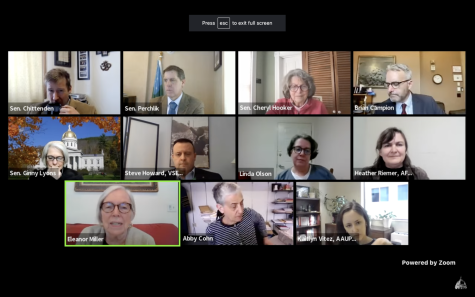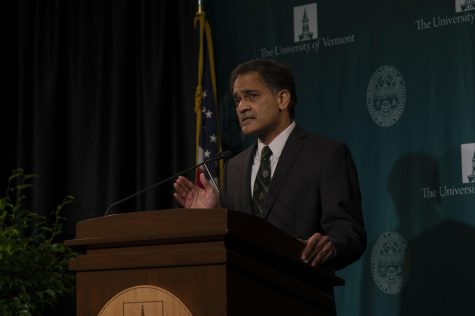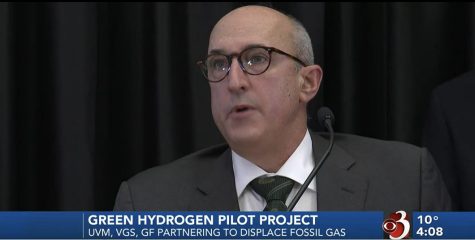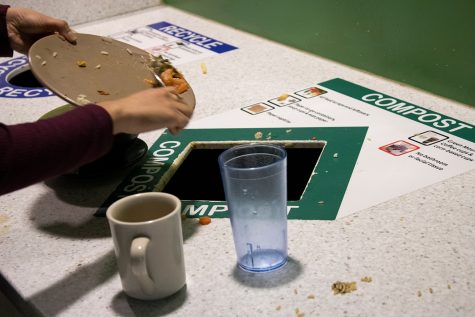Rep. Welch talks with class about Iran
Students in “Introduction to International Relations” participated in a Skype discussion with Rep. Peter Welch Sept. 10 about the Iran nuclear deal that is currently under negotiation.
The deal requires Iran to limit its research and development of nuclear weapons for 15 years, according to an article published by the New York Times.
Welch started the conversation by giving the class a simple background of the agreement and describing the goal of limiting nuclear weapons in Iran.
“Everyone is in agreement, proponents and opponents, that Iran should not have nuclear weapons,” Welch said.
“The question is whether this agreement will accomplish that goal,” he said.
Senior Sara Meotti agreed with Welch.
“I think that we should do what we can to prevent Iran from developing any nuclear weapons, and I think that this is the most effective way: by letting them retain their sovereignty and improving relations with Iran,” Meotti said. Some opponents are concerned with what would happen if Iran violated the deal.
Welch said if there were a substantial violation by Iran, the sanctions lifted by the agreement would resume.
Welch acknowledged Israel’s opposition to the deal, but said the agreement would help achieve a common interest eliminating ISIS.
“This is the complexity of geopolitics,” he said. “Tehran is our adversary and Iran is Israel’s adversary, but Iran is adamantly opposed to ISIS.”
“Israel is against ISIS, the U.S. is against ISIS and Iran is against ISIS, so it’s going to be very interesting to see how things may change once this nuclear issue is off the table,” Welch said.
Sophomore Ellie Smith disagrees with the deal because of its potential to destabilize the Middle East. “I think that it is going to create unnecessary conflict in the Middle East, and I don’t think we should get involved with anything else currently,” Smith said.
Welch said that compliance by Iran is not based on trust, but on the United States’ capacity to constantly monitor what Iran is doing.
One student asked Welch if he felt comfortable with the U.S.’s ability to inspect Iran for nuclear activity, despite the deal’s policy of giving Iran a 21 to 24-day notice if there was any suspicion.
“The 21 and 24-day notice has to do with sites that are not known and where it is suspected by the IAEA that violation of the agreement may be taking place,” Welch said.
Welch also explained the agreement in terms of increasing national security.
“When it comes to national security, you do whatever you can to increase it, and that means you have to negotiate or be willing to negotiate and get a good deal for your country with countries that you don’t trust,” Welch said.
Welch said that this is a negotiation, not an invasion.
Iran is coming to agreement to relinquish nuclear weapons, which does not hinder the U.S. from using military action if necessary.
“Worse case situation, Iran tears the agreement up a month after it goes into effect, and they say we’re moving ahead,” he said. “We’re not constrained from doing anything that we would’ve been doing or that we would want to do for our national security interest.”











